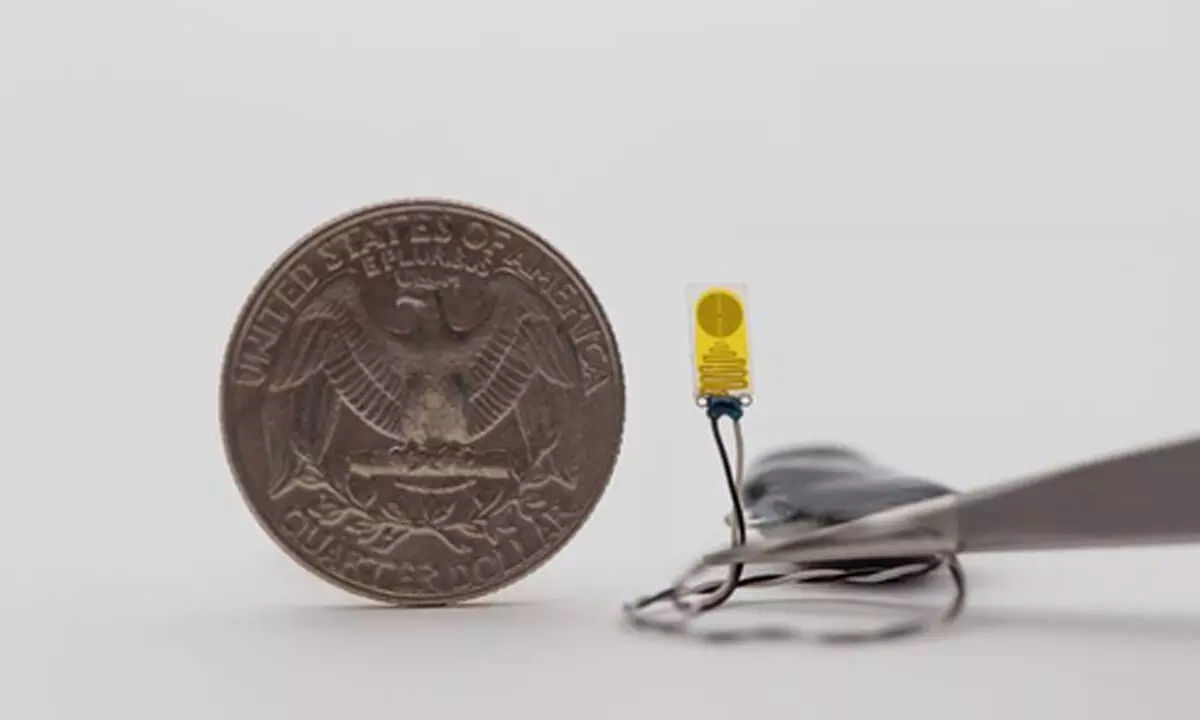Novel device to monitor transplanted organs for early signs of rejection
Share :

Scientists, including one of Indian-origin, have developed the first-ever electronic device that monitors the health of transplanted organs in real time by tracking the its temperature.
New York: Scientists, including one of Indian-origin, have developed the first-ever electronic device that monitors the health of transplanted organs in real time by tracking the its temperature.
The device offers continuous monitoring by tracking the organ's temperature. When temperatures change, the device sends an alert to a smartphone or tablet in real time.
The tiny 0.3 centimetres wide device can directly be fitted on a transplanted kidney and can detect temperature irregularities associated with inflammation and other body responses that arise with transplant rejection.
"Organ temperature fluctuates over a daily cycle under normal circumstances. We observed abnormal higher frequency temperature variations occurring over periods of 8 and 12 hours in cases of transplant rejection," said Surabhi Madhvapathy, a postdoctoral researcher at Northwestern University in the US.
The device contains a highly sensitive thermometer, which can detect incredibly slight (0.004 degrees Celsius) temperature variations on the kidney and also measures blood flow, although the researchers found temperature was a better indicator of rejection.
"If rejection is detected early, physicians can deliver anti-rejection therapies to improve the patient’s health and prevent them from losing the donated organ. In worst-case scenarios, if rejection is ignored, it could be life threatening," said John A. Rogers, bioelectronics researcher at Northwestern.
"The earlier you can catch rejection and engage therapies, the better," he added.
The scientists tested the device on a small animal model with transplanted kidneys and found the device detected warning signs of rejection up to three weeks earlier than current monitoring methods.
Current transplanted organs monitoring methods are not perfect and time consuming.
The current "gold standard" for detecting rejection is a biopsy, in which a physician uses a long needle to extract a tissue sample from the transplanted organ and then analyses the sample for signs of impending rejection.
This method carries risks of multiple complications, including bleeding, infection, pain and even inadvertent damage to nearby tissues.















